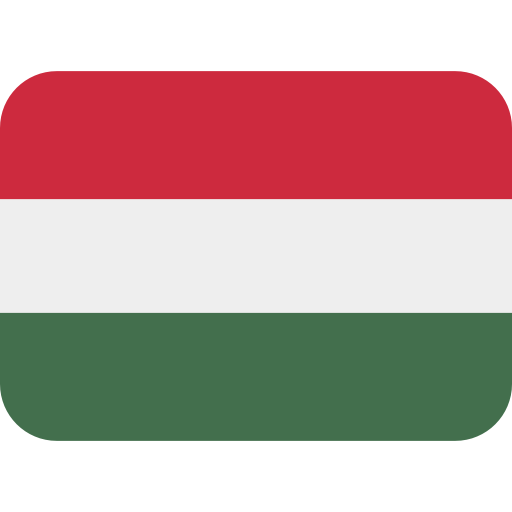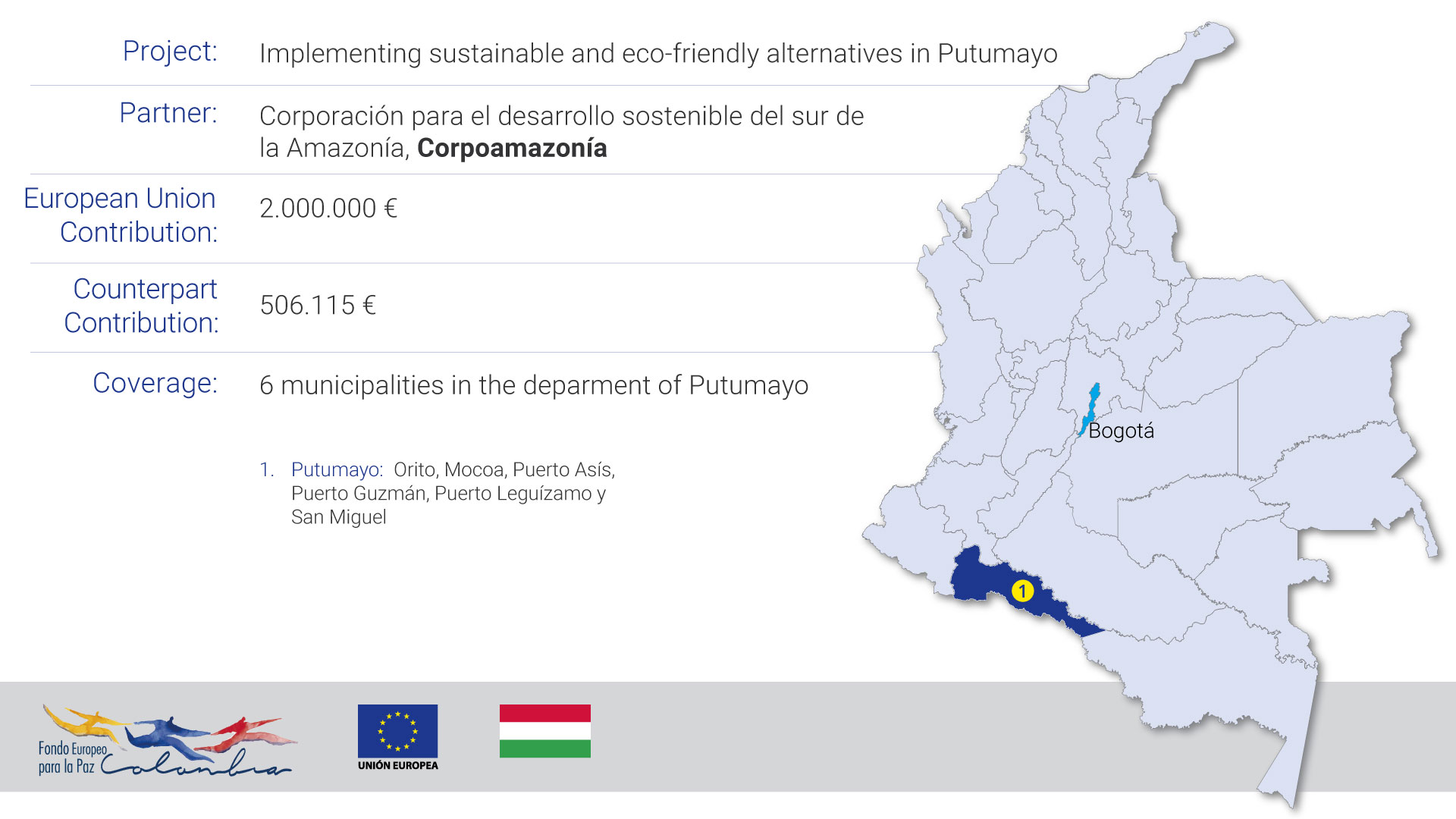

|
Implementing sustainable and eco-friendly alternatives in Putumayo |
|
Support for social and economic reincorporation among local communities and post-conflict actors, through developing more sustainable and inclusive models. |
|
Implementation period
From 24/Nov/2018 To 23/Mar/2022 |
|
General Description
The project supports social and economic reincorporation among local communities and post-conflict actors in Putumayo by developing more sustainable, inclusive, and climate-resilient models. The project also strengthens and stimulates small agricultural producers and former combatants’ economic capacities. It does this through sustainable economic alternatives that preserve and strengthen local ecosystems, and through scientific knowledge and technology transfer.
Some of the sustainable technologies transferred to local actors include: agroforestry systems, botanical gardens, community nurseries, silvopastoral systems, aquaculture, processing plants, marketing, and ecotourism. The project will coordinate actions with Hungarian organizations, experts in economic recovery with a participatory approach, and Colombian organizations such as Corpoamazonía, with extensive experience in ecological technologies and conservation of the Colombian Amazon. The project assists the municipalities in their activities to support the rural economic sector. The process of reincorporation of ex-combatants will be mainly supported by the ETCR in La Carmelita, Puerto Asís. |
|
Contribution to the Peace Accourds
The project contributes to point 1 of the Peace Agreement, implementing sustainable and ecological technologies, and creating economic initiatives to improve the well-being in rural communities. It promotes a model for land management under conservation agreements, community tourism models for ex-combatants and surrounding communities, and a pilot livestock farming model. The project applies knowledge from NAIK, the Hungarian partner, in implementing agroforestry, forest, and climate change projects. The project contributes to point 3.2 of the Peace Agreement, favoring community participation, allowing to improve the communities’ capacities, and technical and economic conditions. It also implements specialized and technical training for ex-combatants in agroforestry systems, aimed at improving income growth and socio-labor inclusion. The project also strengthens the institutional capacities of local authorities like municipal administrations. |
|
Objectives and Results
The project will create a model for using resources, with the possibility of accessing and using land under conservation agreements and sustainable production models. Among these models are: forest use and management schemes, agroforestry systems, silvopastoral models, etc. Based on scientific evidence, the project implements sustainable technologies, which allows improving the community’s technical and economic capacities. The project also aims to improve drinking water supply systems, create a community tourism model directed primarily at ex-combatants, and create a pilot model of intensive or mixed livestock farming. Additionally, the project promotes the preservation of traditional agriculture and women’s local knowledge in indigenous community farms, and the production of juvenile fish through aquaculture systems. |
|
|
||
|
€ 2.000.000 UE Support |
€ 506.115 Counterpart |
€ 2.506.115 Total |
| Featured Indicators |
| Indicator | Goal | Last Update | Advance | Current Value | Status |
|---|---|---|---|---|---|
| 01.Number of hectares of agricultural and pastoral ecosystems in which sustainable land management practices have been introduced with EU support | 400 | December 2021 | 100 % | 400 | Complete |
| 02.Percentage of small producers participating in the project adopting improved technologies | 0 | June 2021 | 0 % | 60 | Complete |
| 03.Number of technicians working with the “Training Trainers” methodology | 19 | March 2022 | 178 % | 34 | Complete |
| 04.Number of qualified technicians working as trainers (IOV DESESTIMADO DEL MML) | 15 | March 2021 | 106 % | 16 | Complete |
| 05.Number of people participating in technical training | 2.000 | December 2021 | 134 % | 2.681 | Complete |
| 06.Number of processing plants in operation | 2 | December 2021 | 100 % | 2 | Complete |
| 07.a Number of persons implementing amazonic gardens | 113 | December 2021 | 100 % | 113 | Complete |
| 07.b Agroforestry and silvopastoral production systems in which sustainable management and conservation practices have been introduced with EU support (number of hectares) | 38 | December 2021 | 100 % | 38 | Complete |
| 08.Number of juvenile fish produced in the Corpoamazonía production center ponds | 20.000 | December 2021 | 145 % | 29.000 | Complete |
| 09.Number of clients benefiting from tourist services (accommodation and trails) at ETCR la Carmelita (IOV DESESTIMADO DEL MML) | 100 | March 2021 | 0 % | 0 | Complete |
| 10.Number of men and women in the ETCR la Carmelita benefiting from drinking water services | 67 | December 2021 | 100 % | 67 | Complete |
| 11.Number of agreements with commercialization agents, including producers, associations, and cooperatives | 5 | December 2021 | 140 % | 7 | Complete |
| 12.Number of people participating in technical tours and / or experience exchanges | 7 | June 2020 | 100 % | 7 | Complete |
| Advocate | Partner | Local Partners and Co-Applicants |

Hungría |
Corporación para el desarrollo sostenible del sur de la Amazonía - Corpoamazonía |
|
Geographic Coverage
Project Resources Download project information in PDF Documents of interest |